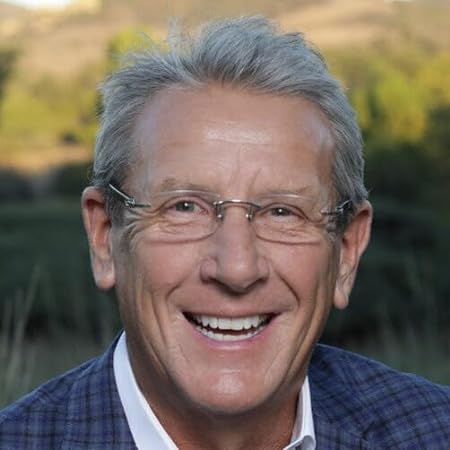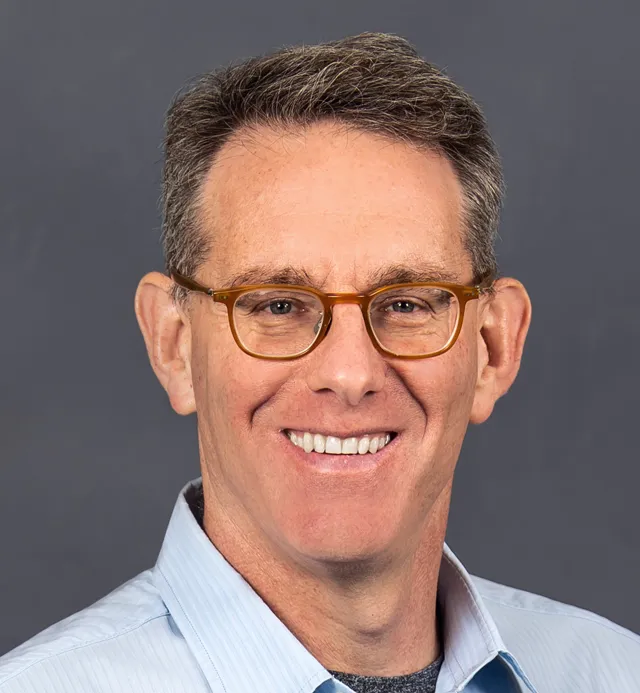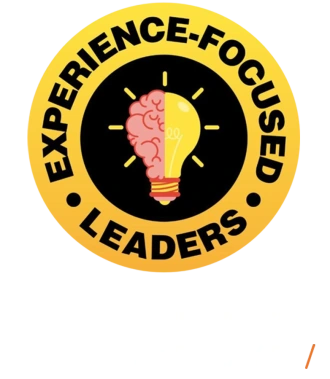Listen to the Podcast Episode on Your Favorite Platform

.svg.png)

The changing landscape of CRM
.png)
The tactics that work today to find potential customers, engage with them and convert them are changing pretty quickly. Unfortunately, in the marketing game, if something works, it kind of gets popular and then beaten to death. So there's very few tactics left. (Greg Head)
(00:01-06:42)
Greg, now a pioneer in reshaping technology startups, shares insights from his long career and discusses the changing landscape of CRM. From his early days with ACT software to steering Infusionsoft's growth, Greg reflects on the evolving dynamics of the sales and marketing game.
The conversation explores the shifts in tactics, the impact of the internet, and the ever-changing world of marketing technology. Greg emphasizes the acceleration in software development and market entry, making venture capital less essential for startups. He also highlights the enduring aspects, such as the fundamental human psychology that remains unchanged despite technological advancements.
.png)
The significance of positioning
.png)
Not just go grab somebody by the collar, pull them in and try to sell to them. But to be known as the best at something important for someone specific is still a modern way to stay in the positioning game. (Greg Head)
(06:42-14:35)
The discussion takes a deep dive into the significance of positioning as Greg challenges the notion of branding and advocates for clarity in understanding who a product is for, what it does, and how it stands out. He highlights that being known as the best at something important for a specific audience remains a timeless strategy in the positioning game.
As the conversation shifts to product-led growth, Greg and Alex explore its historical roots, citing examples like ACT software's early days. They discuss the implications of product-led growth on buyer expectations, distribution strategies, and the role of investment in both product development and distribution.
The duo touches upon the shift towards a more consultative sales approach for complex software while acknowledging the efficiency of product-led growth in mature categories. Greg sheds light on the practical founder movement, emphasizing that the ease of building and entering the market, coupled with the right positioning and product-led strategies, allows startups to thrive without excessive reliance on venture capital.
.png)

Startups no longer need extensive VC funding
.png)
Big companies don't innovate like creative front-line edgy entrepreneurs. It's an advantage for the small companies that don't have billion-dollar quotas that they can do things creatively and differently. (Greg Head)
(14:35-23:54)
Greg advocates for a more nuanced approach, emphasizing that in today's landscape, startups no longer need extensive VC funding to build and scale global software companies. He outlines how product-led growth has become a valuable tactic, leveraging avenues like paid ads and SEO to efficiently convert leads into customers. The discussion also touches on the significance of earned channels, such as Greg's successful engagement on LinkedIn, as valuable long-term investments.
As the conversation unfolds, Greg provides insights into the efficient channels and tactics that practical founders can employ to reach their target audience. From vertical market approaches to strategic positioning against industry leaders, the podcast delves into alternative methods that can lead to successful market penetration without the need for excessive funding.
Furthermore, the episode explores how the agility of small startups often surpasses that of larger corporations in terms of innovation and creative marketing. Greg highlights the advantages that small companies have in crafting unique and authentic messages that resonate with their audience, positioning themselves against industry giants.
.png)
To grow a serious company, focus is crucial
.png)
At focus, every restaurant owner could make any kind of food. Any chef could make any kind of food in their restaurant by the end of the week. Thai, Italian, French, ice cream, hamburgers, but they don't. The ones that scale globally, nationally, are the ones that are known for a very specific kind of food. (Greg Head)
(23:54-29:31)
The focus shifts to the predicament faced by small organizations when balancing experimentation and resource constraints. Alex brings up the tension between having a big vision and the practicality of drawing in a large audience to discover the ideal customer. In contrast to the conventional VC advice of relentless focus, Greg shares a nuanced perspective, advocating for a phased approach where experimentation is embraced until a certain stage is reached.
Greg underscores the law of nature that to grow a serious company, focus is crucial. He draws parallels with restaurants specializing in specific cuisines rather than offering an array of options. The conversation delves into the experimentation zone of startups and the twist introduced by early-stage overfunding, where founders, still in the discovery phase, are propelled down paths that may not be venture-scalable.
.png)

Testing before scaling
.png)
You just need to know what game you're playing, be open-eyed. The biases that I think most founders get is from the press. It's the TechCrunch stories, it's the venture announcement that people congratulate you on. (Greg Head)
(29:31-36:49)
The conversation opens with a vivid analogy — overfunding early-stage startups is like pumping diesel fuel into gasoline tanks — an apt metaphor for the misalignment between early-stage capital injection and the experimental nature of startups.
Greg emphasizes the importance of testing before scaling, akin to the principles of modern marketing. He argues that startups, primarily in the innovation phase, require a patient approach, highlighting the lean startup philosophy of gradually finding the right fit through experimentation. The episode challenges the conventional wisdom of rushing to scale with massive VC funding, pointing out that such a strategy frequently leads to catastrophic outcomes.
A key insight emerges: the modern VC landscape has evolved, becoming more impatient and focused on rapid growth. Greg posits that the prevalent approach of substantial early-stage funding often results in founders prematurely claiming to have the answers, leading to a mismatch between expectations and the reality of the startup journey.
The discussion delves into the human factors at play, including ego, greed, and the pressures from the funding industrial complex that often push founders toward a one-size-fits-all solution — VC funding. Greg advises founders to be open-eyed, understanding the game they are playing and the risks associated with different funding models.
The true success lies not in funding rounds but in building a scalable, customer-centric business with a focus on product-market fit.
.png)
Beyond the traditional VC-funded model
.png)
One of the ways to succeed in this game and quote exit, take money off the table for a founder, is to grow a 5 or $10 million business and then take 3 or $5 million out of it every year for years. You don't actually have to exit and that's making more money than 90% of VCs make a year. (Greg Head)
(36:49-44:52)
The conversation navigates the changing dynamics of exit markets, exploring the various paths founders can take, from private equity buyouts to IPOs.
Greg highlights the maturation of the SaaS model and the sophistication of buyers in the current market. He points out the anomaly of the 2018-2019 bubble, where interest and valuations skyrocketed, followed by a return to a more normal climate in 2020-2021.
Crucially, Greg outlines the multiple options available for founders beyond the traditional VC-funded model. He emphasizes that the average exit value for practical founders who build sustainable, profitable companies without significant VC funding is around $50 million. This challenges the narrative that massive funding rounds are the only path to success.
.png)

A savvy approach to building and growing a product
.png)
There's a myth that the smart guys raise funding and the C students don't raise funding. Sorry, bootstrap, or you weren't part of the cool kids. Now, if you're smart enough to go to market, get to product market fast, run the test, build a team and be super efficient, if you're savvy enough, you can stay off the funding drugs. (Greg Head)
(44:52-49:44)
The conversation challenges the notion that rapid funding and instant success go hand in hand, emphasizing the importance of creativity, scrappiness, and a savvy approach to building and growing a product.
Greg contends that being on a funding hamster wheel is no longer a necessity for smart entrepreneurs. Contrary to the belief that only the "cool kids" who raise substantial funds are successful, he argues that those who are savvy enough to navigate the market, achieve product-market fit, and build efficient teams can stay off the funding treadmill. Greg notes the current indigestion in the tech space resulting from the overfunding surge of 2020-21, leading to shutdowns, founder oustings, and layoffs. The conversation becomes a call to founders and entrepreneurs to seek a better, more sustainable way forward.
The speakers then dive into real success stories, citing examples like Webflow and Canva, where the founders iterated and experimented for an extended period before achieving widespread recognition. Greg emphasizes that solving the puzzle requires time and multiple attempts, and success is often a result of persistent efforts rather than overnight brilliance.
.png)
The myth of an overnight success
.png)
It's almost a rule that if somebody raised VC funding, they're in a stress zone. If I don't get my number hit my growth number, if this doesn't work, I'm out of business. They're going to shoot me, they're going to take down the business. I can't survive without VC funding. So if I don't raise another funding round, I got to close the doors. That's a really brutal stress game. (Greg Head)
(49:44-54:55)
With a refreshing take on venture capital, Greg emphasizes the importance of being clever and savvy over simply having deep pockets. The speakers explore stories of successful companies like Webflow and Canva, revealing that overnight success is often a myth. Greg's insight challenges the common narrative that well-funded startups are the smartest players on the field.
As the conversation unfolds, Greg sheds light on the true leverage in business, debunking the myth that capital is the ultimate solution. The speakers discuss the differences between practical founders and their VC-backed counterparts, highlighting the happiness factor often found among those who've opted for a more scrappy journey. They delve into the challenges faced by practical founders, from scaling with limited resources to the importance of defining success on one's terms.
.png)

Delving into buyer-centric experiences
(54:55-1:03:39)
Alex and Greg discuss the intrinsic motivation of practical founders who genuinely care about their customers, distinguishing them from those who view businesses merely as financial opportunities.
Delving into buyer-centric experiences, the speakers explore how the pressure of external funding can drive growth but also unpacks the pitfalls of chasing unnatural expansion. Greg advocates for finding the sweet spot where patience, creativity, and independence converge, allowing practical founders to build steady, sustainable businesses. The conversation touches on the unique advantages of the practical founder model, highlighting the diversity it brings to the entrepreneurial landscape.
.png)
A refreshing perspective for the investors
.png)
Most VCs would rather see a slow-growing company fail than keep it on the books for another five years. (Greg Head)
(1:03:39-1:08:29)
Greg dismantles the traditional VC pitch, revealing that practical founders aren't enticed by the one-size-fits-all approach of massive funding rounds and rapid exits. Instead, he highlights the need for practical investors who understand the nuances of these founders' journeys.
The conversation sheds light on the distinction between traditional VC models and the more patient, hands-on approach that aligns with practical founders' goals. Greg emphasizes the importance of smaller, practical investments, reasonable growth rates, and an extended timeframe, providing a refreshing perspective on how investors can genuinely support practical founders on their unique paths.
.png)
Check the the episode's Transcript (AI-generated) HERE.
Other Episodes

Godard Abel | CEO of G2
S 01 | Ep 6 Where You Go for Software: Reach Your Peak


Dean Stocker | CEO of Alteryx
S 01 | Ep 8 Turning Your Customers Into Your Biggest Champions


Peter Fader | Co-Founder of ThetaCLV
S 01 | Ep 10 Turning Your Marketing Into Dollars

Author

Experience-focused Leaders is the #1 Multimedia Podcast! We talk to senior business & tech leaders about the experiences that move forward organizations, customers and society at large. True to form, we mix audio, video, web and eBook formats to turn these authentic conversations into personalized nuggets you'll remember & use.



.png)
